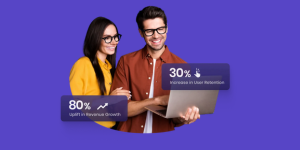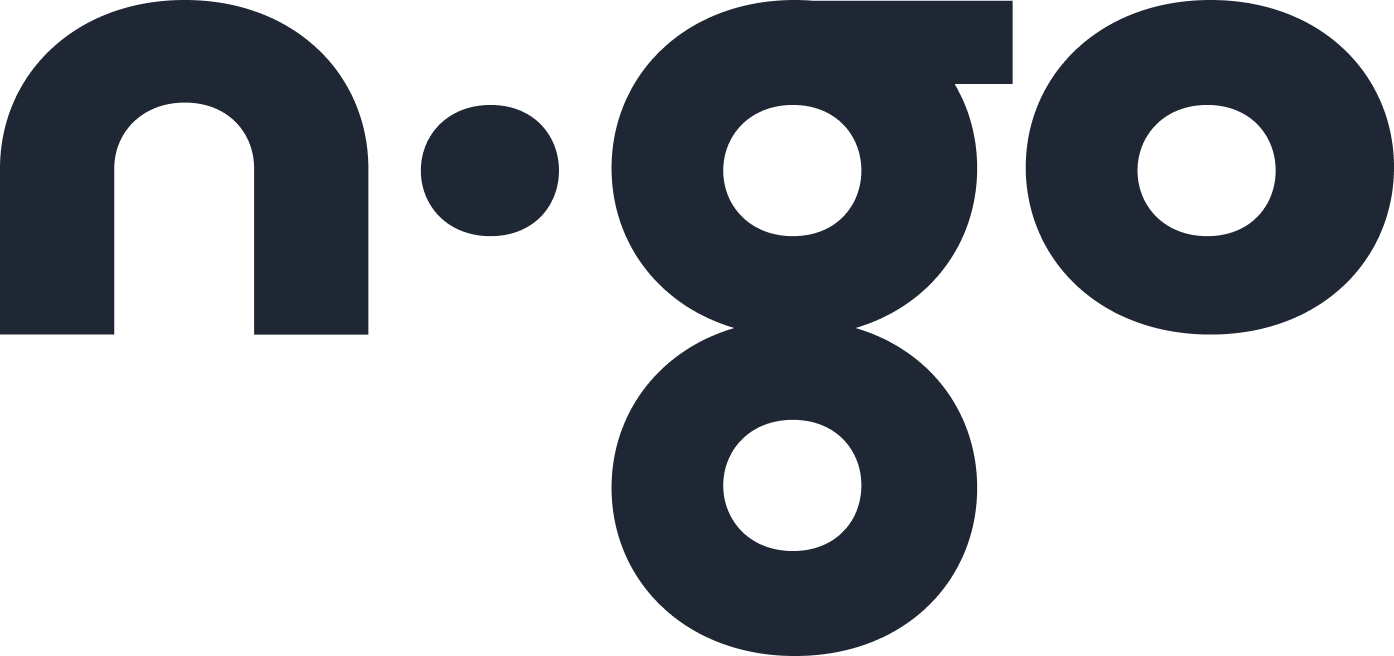About EazyDiner
EazyDiner is an instant restaurant table booking platform founded in 2014 by a collective group of renowned and highly experienced chefs and hoteliers across the world. EazyDiner offers table reservations at 6000+ registered restaurants in Delhi NCR, Mumbai, Bengaluru, Pune, Chennai, Kolkata, Goa, Ahmedabad, Jaipur, Hyderabad, Chandigarh, Lucknow, and Dubai on the EazyDiner app and website with guaranteed offers.
“About 20 percent of the seats in a restaurant go vacant everyday. On weekdays, this number shoots up to 50-55 percent”, said co-founder & COO of EazyDiner, Rohit Dasgupta.
Considering the facts, EazyDiner decided to help diners make reservations at restaurants within minutes, and for restaurants to be able to offer and take bookings seamlessly.

To solve this, EazyDiner tried a couple of marketing automation tools before switching to WebEngage. But they weren’t really satisfied with the on-boarding experience. And when the start is rocky, unpleasant experiences follow. So before joining hands with WebEngage, the EazyDiner team had specific expectations and challenges.
Expectations and Challenges
1. Integration and support
Integration was the most important part of the process as nothing moves forward unless the right channels, events, and platforms (like Google Analytics, CRM, etc.) are integrated into the marketing automation platform. So the EazyDiner team wanted to complete the integration process soon and without much hassle. But due to their past experience with other marketing platforms, they were skeptical about whether we will provide a simple process and adequate support.
2. Data was strewn across multiple channels and mediums
Since EazyDiner’s user data was strewn across channels and mediums, sending out multi-channel communication was extremely challenging. They were also using various tools including CRM and social media. Integrating data from across these touchpoints and mediums was extremely challenging. Additionally, push notifications are pivotal to their business – so EazyDiner wanted to have push notifications up and running without any glitches.
3. Timeline
The business is in its important growth stage – so the team didn’t want to go through a lengthy onboarding phase. They were expecting to have the integration completed within 5-6 weeks.
4. Specific use cases
EazyDiner had a set of primary use cases – some also required specific channel/medium integrations.
- Location-based targeting: A user looking for restaurants/offers in a particular area must get relevant communication about the restaurants in that area.
- User targeting: Personalized communication must be sent to a set of users who did or did not do a specific event.
- Multi-channel engagement: Depending on the user’s past actions and behavior, relevant communication must be sent across multiple channels.
5. Campaigns
Based on the use-cases mentioned above, EazyDiner wanted a no-frills and quick campaign execution that also helps them save their human hours. They aimed at having their integration done in such a manner that it helps them plan and execute their campaigns easily and strategically.
WebEngage at work
When the onboarding phase started with EazyDiner we stuck to a multitude of elements that ensured a customized, hassle-free onboarding experience for EazyDiner. Here’s how we did it:
1. Aligned our team
Yes! We’re talking about our team. As soon as EazyDiner signed up, we assigned an onboarding manager and a customer success manager to take care of the account. The managers conducted a kickoff meeting with the stakeholders at EazyDiner and deep dove into EazyDiner’s use cases, expectations, and challenges.
2. Set the stage for EazyDiner’s expectation
The managers then found the ins and outs of EazyDiner and promised an initial go live with a handful of use cases. So that EazyDiner can actually see if the integration is working fine and as expected. The onboarding manager also laid out a Scope of Work (SOW) which sets things clear and brings both the teams on the same page.
3. Defined the milestones and timelines
We mutually chalked out an onboarding plan that included deadlines for every particular thing. This helped in achieving the onboarding milestones and sticking to the turn-around-time (TAT). The onboarding expert broke down the integration process into a four-week process.

4. Fused the user data into a single platform
We collated the user data from across the channels and mediums and stored it on a single platform i.e. our marketing automation platform.
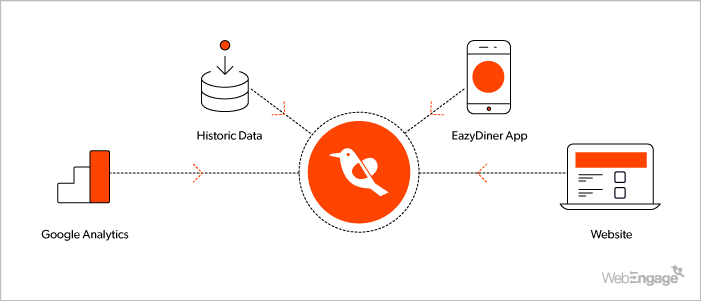
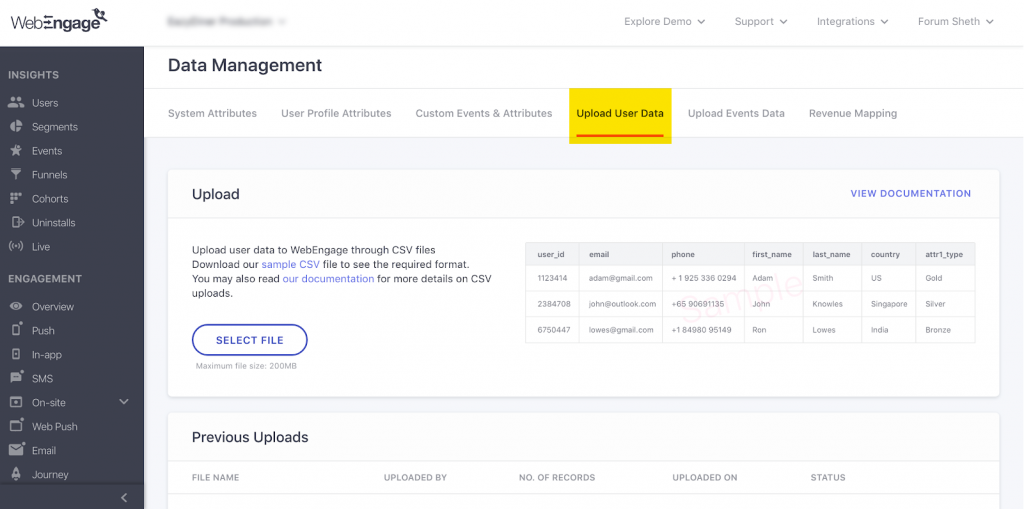
5. Provided dedicated human assistance
Along with the integration manuals, product tutorials, documentation, and educational emails, our onboarding manager played a proactive role in ensuring and aiding the EazyDiner team at every stage of integration. The manager provided one-to-one training and assistance.

6. Enabled real-time indication
We have a progress meter for each function of integration. The color of the success meters for every function changes from red to orange to green as the integration progresses from undone to in process to completed respectively.
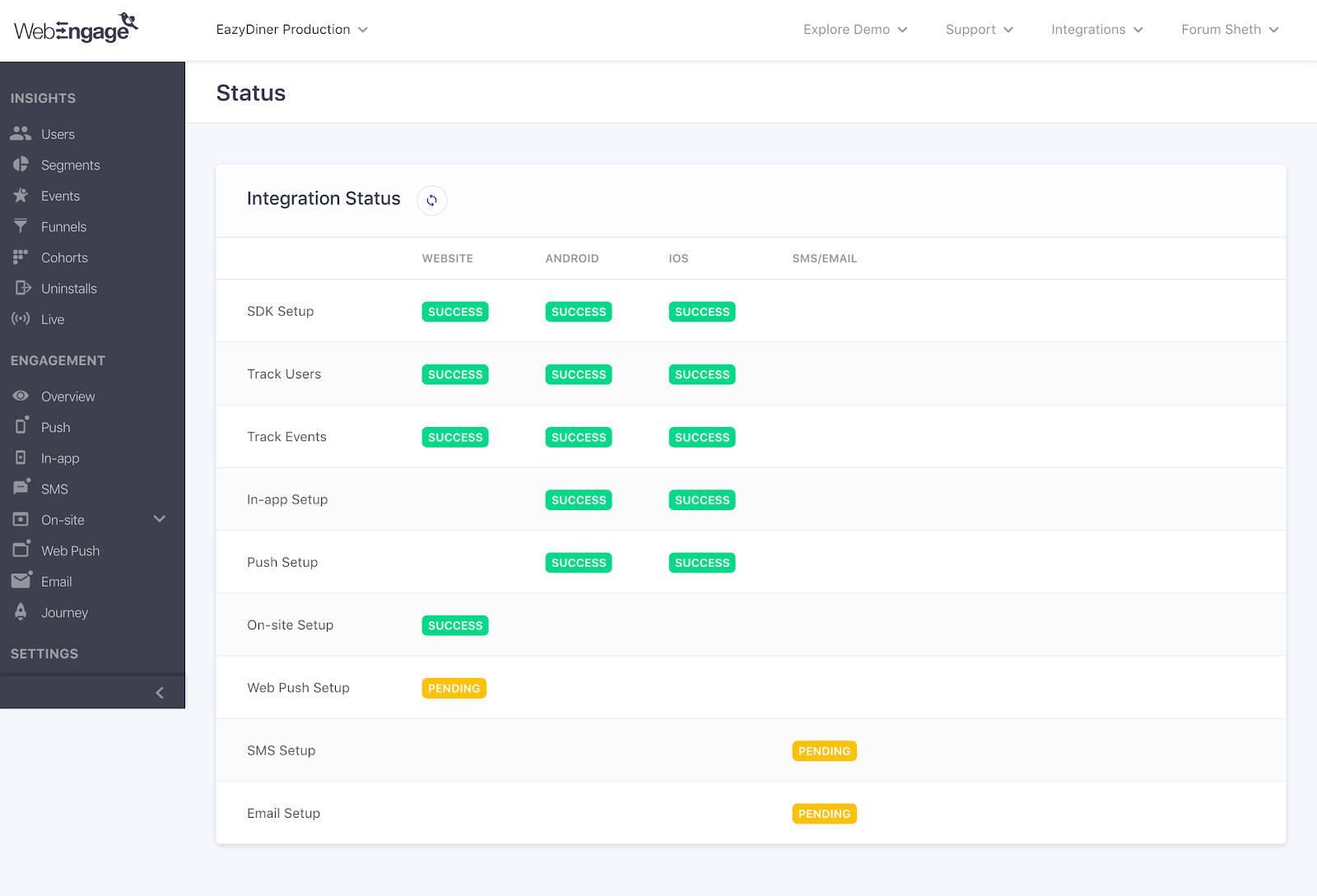
7. Solicited feedback at every level
For us, it’s never too late to ask for feedback. So during the integration phase, our team sought feedback from the EazyDiner stakeholders on the completion of every milestone. We made checkup calls to ensure that everything happened correctly and as expected. We do this regularly even after the onboarding process is over.
8. Simplified the use cases and introduced automated journeys
- Location-based targeting: We enabled the geofencing feature to ensure that a user looking for restaurants/offers in a particular area gets exact communication about all the restaurants in that particular area.
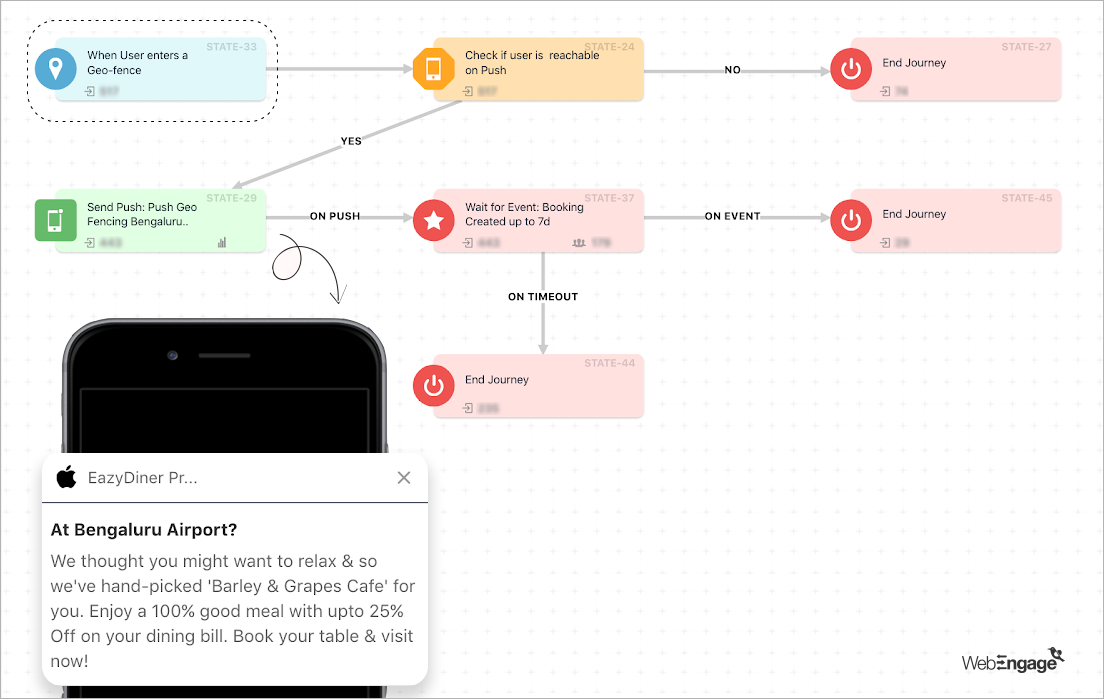
- Segment-based user targeting: We recommended creating segments of users depending on their past actions and behavior. This helped them in deciding the next best communication and send it in a personalized manner.

- Cross-channel engagement: Instead of sending messages on different channels in an ad-hoc or bulk fashion, we suggested creating cross-channel journeys – to help EazyDiner orchestrate their campaigns across channels throughout the customer lifecycle.
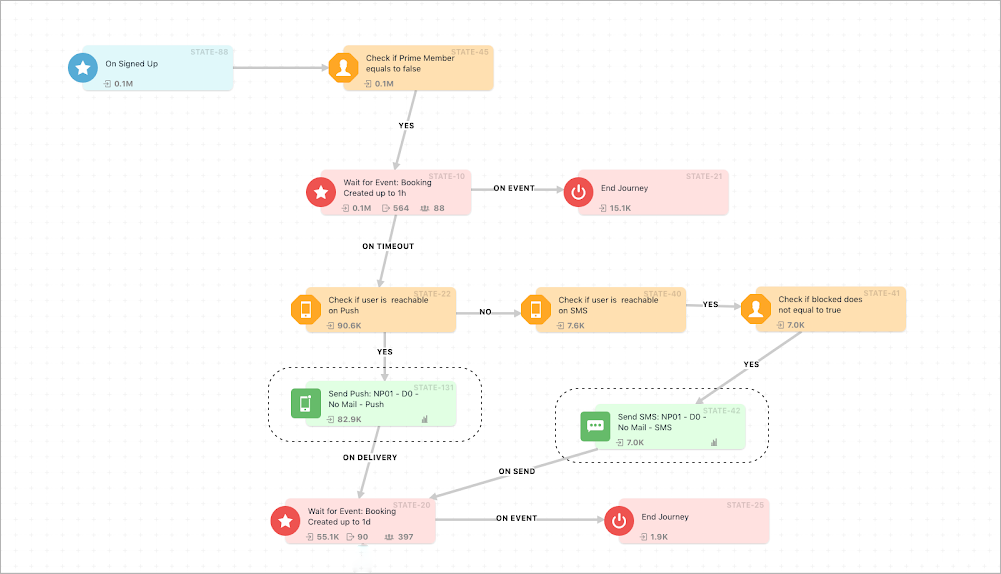
FINAL THOUGHTS
Customers are smart enough to make their own success. But they expect certain outcomes by using your product.
Before switching to WebEngage, the EazyDiner team was unsure about associating with us for an optimum period. They had their concerns and challenges to be taken care of. One of the biggest concerns was product integration. The onus, as a solution provider, was on us to handle their concerns and solve their challenges.
Deploying a dedicated onboarding manager transformed the entire onboarding experience for EazyDiner. The hassle-free integration process, live updates, one-to-one product training, and timed processes fostered our relationship with the EazyDiner team. Today EazyDiner communicates with over 7 lakh users via our marketing automation dashboard and has been seeing commendable conversions.
The crux of it all? SaaS customer onboarding can make or break your customer retention!
Also read: Why is SaaS customer onboarding important?




